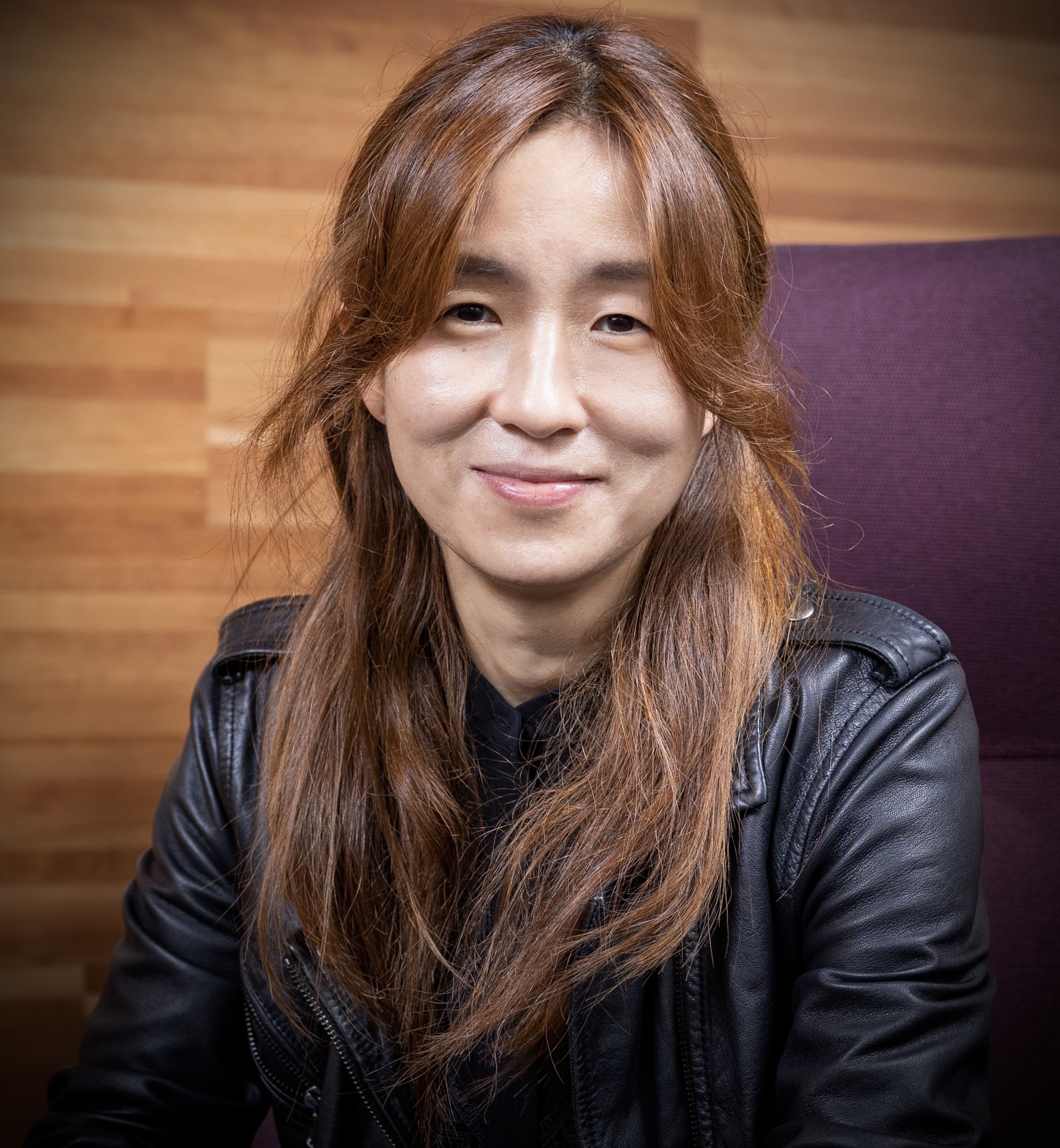VLDB 2023: Keynote Speakers
29Aug
 Common Sense: the Dark Matter of Language and Intelligence
Wissner-Slivka Professor, Paul G. Allen School of Computer Science & Engineering, University of Washington
Abstract:
Scale appears to be the winning recipe in today's leaderboards. And yet, extreme-scale neural models are (un)surprisingly brittle and make errors that are often nonsensical and even counterintuitive. In this talk, I will argue for the importance of knowledge, especially commonsense knowledge, as well as inference-time reasoning algorithms, and demonstrate how smaller models developed in academia can still have an edge over larger industry-scale models, if powered with knowledge and/or reasoning algorithms.
Bio:
Yejin Choi is Wissner-Slivka Professor and a MacArthur Fellow at the Paul G. Allen School of Computer Science & Engineering at the University of Washington. She is also a senior director at AI2 overseeing the project Mosaic and a Distinguished Research Fellow at the Institute for Ethics in AI at the University of Oxford. Her research investigates if (and how) AI systems can learn commonsense knowledge and reasoning, if machines can (and should) learn moral reasoning, and various other problems in NLP, AI, and Vision including neuro-symbolic integration, language grounding with vision and interactions, and AI for social good. She is a co-recipient of 2 Test of Time Awards (at ACL 2021 and ICCV 2021), 7 Best/Outstanding Paper Awards (at ACL 2023, NAACL 2022, ICML 2022, NeurIPS 2021, AAAI 2019, and ICCV 2013), the Borg Early Career Award (BECA) in 2018, the inaugural Alexa Prize Challenge in 2017, and IEEE AI's 10 to Watch in 2016.
Common Sense: the Dark Matter of Language and Intelligence
Wissner-Slivka Professor, Paul G. Allen School of Computer Science & Engineering, University of Washington
Abstract:
Scale appears to be the winning recipe in today's leaderboards. And yet, extreme-scale neural models are (un)surprisingly brittle and make errors that are often nonsensical and even counterintuitive. In this talk, I will argue for the importance of knowledge, especially commonsense knowledge, as well as inference-time reasoning algorithms, and demonstrate how smaller models developed in academia can still have an edge over larger industry-scale models, if powered with knowledge and/or reasoning algorithms.
Bio:
Yejin Choi is Wissner-Slivka Professor and a MacArthur Fellow at the Paul G. Allen School of Computer Science & Engineering at the University of Washington. She is also a senior director at AI2 overseeing the project Mosaic and a Distinguished Research Fellow at the Institute for Ethics in AI at the University of Oxford. Her research investigates if (and how) AI systems can learn commonsense knowledge and reasoning, if machines can (and should) learn moral reasoning, and various other problems in NLP, AI, and Vision including neuro-symbolic integration, language grounding with vision and interactions, and AI for social good. She is a co-recipient of 2 Test of Time Awards (at ACL 2021 and ICCV 2021), 7 Best/Outstanding Paper Awards (at ACL 2023, NAACL 2022, ICML 2022, NeurIPS 2021, AAAI 2019, and ICCV 2013), the Borg Early Career Award (BECA) in 2018, the inaugural Alexa Prize Challenge in 2017, and IEEE AI's 10 to Watch in 2016.
 Modernization of Databases in the Cloud Era: Building Databases that Run Like Legos
Vice President, Alibaba Group; Director of Alibaba Cloud Database Product Business Unit; Director of DAMO Academy Database Lab
Abstract:
Utilizing the cloud for common and critical computing infrastructures has already become the norm across the board. The rapid evolvement of the underlying cloud infrastructure and the revolutionary development of AI present both challenges and opportunities for building new database architectures and systems. It is crucial to modernize database systems in the cloud era, so that next-generation cloud-native databases may run like legos–they are adaptive, flexible, reliable, and smart towards dynamic workloads and varying requirements. That said, we observe four critical trends and requirements for the modernization of cloud databases: embracing cloud-native architecture, cloud platform integration/orchestration, co-design for data fabric, and AI-first/AI-inside. Modernizing database systems by adopting these critical trends and addressing key challenges associated with them provides ample opportunities for data management communities from both academia and industry to explore. We will provide an in-depth case study of how we modernize PolarDB with respect to embracing these four trends in the cloud era. Our ultimate goal is to build databases that run just like playing with Legos so that a database system fits rich and dynamic workloads/requirements in a self-adaptive, performant, easy-to/intuitive-to-use, reliable, and intelligent manner.
Bio:
Feifei Li is currently a Vice President of Alibaba Group, director of the database product business unit of Alibaba Cloud, and director of the database lab of DAMO Academy. He was a full professor at the School of Computing, University of Utah before joining Alibaba in 2018. He has won multiple awards from ACM/IEEE and others. He is a recipient of ACM SIGMOD 2023 best paper award, EDBT 2022 10 Years Test of Time Award, IEEE ICDCS 2020 best paper award, ACM SoCC 2019 Best Paper Award Runner-up, IEEE ICDE 2014 10 Years Most Influential Paper Award, ACM SIGMOD 2016 Best Paper Award, ACM SIGMOD 2015 Best System Demonstration Award, and IEEE ICDE 2004 Best Paper Award. He has been an editor, PC co-chair, and core committee member for many prestigious journals, conferences, and technical meetings. He has led the R&D efforts of building cloud-native database systems and products at Alibaba, such as cloud-native database PolarDB and cloud-native data warehouse AnalyticDB which propels Alibaba Cloud Database to be named a Cloud DBMS market leader by Gartner three years in a row. He is an ACM/CCF/IEEE Fellow.
Modernization of Databases in the Cloud Era: Building Databases that Run Like Legos
Vice President, Alibaba Group; Director of Alibaba Cloud Database Product Business Unit; Director of DAMO Academy Database Lab
Abstract:
Utilizing the cloud for common and critical computing infrastructures has already become the norm across the board. The rapid evolvement of the underlying cloud infrastructure and the revolutionary development of AI present both challenges and opportunities for building new database architectures and systems. It is crucial to modernize database systems in the cloud era, so that next-generation cloud-native databases may run like legos–they are adaptive, flexible, reliable, and smart towards dynamic workloads and varying requirements. That said, we observe four critical trends and requirements for the modernization of cloud databases: embracing cloud-native architecture, cloud platform integration/orchestration, co-design for data fabric, and AI-first/AI-inside. Modernizing database systems by adopting these critical trends and addressing key challenges associated with them provides ample opportunities for data management communities from both academia and industry to explore. We will provide an in-depth case study of how we modernize PolarDB with respect to embracing these four trends in the cloud era. Our ultimate goal is to build databases that run just like playing with Legos so that a database system fits rich and dynamic workloads/requirements in a self-adaptive, performant, easy-to/intuitive-to-use, reliable, and intelligent manner.
Bio:
Feifei Li is currently a Vice President of Alibaba Group, director of the database product business unit of Alibaba Cloud, and director of the database lab of DAMO Academy. He was a full professor at the School of Computing, University of Utah before joining Alibaba in 2018. He has won multiple awards from ACM/IEEE and others. He is a recipient of ACM SIGMOD 2023 best paper award, EDBT 2022 10 Years Test of Time Award, IEEE ICDCS 2020 best paper award, ACM SoCC 2019 Best Paper Award Runner-up, IEEE ICDE 2014 10 Years Most Influential Paper Award, ACM SIGMOD 2016 Best Paper Award, ACM SIGMOD 2015 Best System Demonstration Award, and IEEE ICDE 2004 Best Paper Award. He has been an editor, PC co-chair, and core committee member for many prestigious journals, conferences, and technical meetings. He has led the R&D efforts of building cloud-native database systems and products at Alibaba, such as cloud-native database PolarDB and cloud-native data warehouse AnalyticDB which propels Alibaba Cloud Database to be named a Cloud DBMS market leader by Gartner three years in a row. He is an ACM/CCF/IEEE Fellow.
30Aug
 On the Cusp: Computing Thrills and Perils and Professional Awakening
CEO, Intact Digital Ltd.; Research Director, Arabic Language Technologies, Qatar Computing Research Institute, Doha, Qatar; Professor Emerita, University of Nottingham, UK
Abstract:
Computing is underpinning the digital revolution and profoundly affecting modern civilization. This is a bird’s-eye view of innovation waves from the introduction of main-frame computing and first PCs to the internet, web, mobiles, high-performance computing, clouds, and AI. But how does that look on the ground? This talk is a reflection on our collective practices in the field of computing, from early innovation by scientists and engineers to market delivery by entrepreneurs, industry leaders, and practitioners. It is also a call-for-action to fulfill our mandate as computing professionals, with full awareness of our responsibilities and proactive actions to ensure the safety, security, and protection of all those who are affected by our work.
Why is this important now? Over the past decades, we have matured as a profession, developing research and engineering practices and creating technological wonders of the 20th and 21st centuries. We have enabled data capture and analyses that empower every science and industry, information delivery that serves billions of users in a split of a second, and experiences of real and virtual worlds that transform perceptions and livelihoods. The thrills of breakthroughs, insights, and impact continue to drive our field. But the transformational power of our innovation must be matched by the highest standard of professional conduct.
We are intimately linked to the ICT (Information and Communications Technology) industry that leverages our research, innovation, and expertise to deliver capabilities of potential use across industries. In contrast to the controlled technology adoption in regulated sectors such as pharma, health, manufacturing, and finance, with careful risk and quality management, ICT does not follow the same practices. Many ICT services aim at general consumption which often lacks a solid regulatory footing. In many instances, they do not apply principles of responsible deployment, including quality assurance and quality control for intended use. The perils of sidestepping our professional principles are amplified by the scale and impact of our technologies.
After 80 years of rapid innovation, we are at the cusp of a phase transition that can wipe out perhaps the most profound contribution to humanity: the use of the digital medium. We adopted it to capture, manage, and share human knowledge and put great effort into protecting its quality, truthfulness, and trust in its sources. The latest thrills of generative AI carry great perils for digital humanity: uncontrolled use can turn knowledge records into indiscernible mush, destroy human agency in the digital world, and endanger human personhood in everyday life. This should be a turning point in our professional awakening: our professional ethics must be our guide and our professional code of conduct must be our utmost obligation.
Bio:
Dr. Natasa Milic-Frayling is Research Director at the Qatar Computing Research Institute (QCRI) leading research and innovation initiatives of the Arabic Language Technology group. She is Professor Emerita with the School of Computer Science at the University of Nottingham where she served as Chair of Data Science and taught professional ethics in computing. In 2016, Natasa founded Intact Digital Ltd., a digital continuity company that addresses the issues of digital obsolescence and long-term care of software technologies in order to protect valuable digital assets. As Intact Digital CEO, she is working with decision makers and thought leaders in the pharma sector and life-sciences to ensure data integrity and reconstruction of research studies for decades to come.
Natasa has 25+ years of experience in computer science research and innovation, including 17 years at Microsoft Research (MSR) where she led Integrated Systems group, focusing on interdisciplinary research in information management and communication. She has authored research publications across domains, from information retrieval, machine learning and dialogue generation to security and HCI, and has a dozen approved patents to her name. Besides her research role, Natasa led MSR Research Partnership Programme, promoting collaboration on strategic ICT industry challenges, including digital preservation (PLANETS and SCAPE EU projects).
Natasa is actively engaged with a broader professional community. She is a member of the Preservation Sub-Committee within the UNESCO Memory of the World Programme and serves as Chair of the Research and Technology Working group for the UNESCO PERSIST project. She is a member of the ACM Europe Technology Policy Committee and IT Committee of the Research Quality Association (RQA). In the past she has served on the ACM Europe Council and as Chair of the ACM Women Europe Executive Committee.
On the Cusp: Computing Thrills and Perils and Professional Awakening
CEO, Intact Digital Ltd.; Research Director, Arabic Language Technologies, Qatar Computing Research Institute, Doha, Qatar; Professor Emerita, University of Nottingham, UK
Abstract:
Computing is underpinning the digital revolution and profoundly affecting modern civilization. This is a bird’s-eye view of innovation waves from the introduction of main-frame computing and first PCs to the internet, web, mobiles, high-performance computing, clouds, and AI. But how does that look on the ground? This talk is a reflection on our collective practices in the field of computing, from early innovation by scientists and engineers to market delivery by entrepreneurs, industry leaders, and practitioners. It is also a call-for-action to fulfill our mandate as computing professionals, with full awareness of our responsibilities and proactive actions to ensure the safety, security, and protection of all those who are affected by our work.
Why is this important now? Over the past decades, we have matured as a profession, developing research and engineering practices and creating technological wonders of the 20th and 21st centuries. We have enabled data capture and analyses that empower every science and industry, information delivery that serves billions of users in a split of a second, and experiences of real and virtual worlds that transform perceptions and livelihoods. The thrills of breakthroughs, insights, and impact continue to drive our field. But the transformational power of our innovation must be matched by the highest standard of professional conduct.
We are intimately linked to the ICT (Information and Communications Technology) industry that leverages our research, innovation, and expertise to deliver capabilities of potential use across industries. In contrast to the controlled technology adoption in regulated sectors such as pharma, health, manufacturing, and finance, with careful risk and quality management, ICT does not follow the same practices. Many ICT services aim at general consumption which often lacks a solid regulatory footing. In many instances, they do not apply principles of responsible deployment, including quality assurance and quality control for intended use. The perils of sidestepping our professional principles are amplified by the scale and impact of our technologies.
After 80 years of rapid innovation, we are at the cusp of a phase transition that can wipe out perhaps the most profound contribution to humanity: the use of the digital medium. We adopted it to capture, manage, and share human knowledge and put great effort into protecting its quality, truthfulness, and trust in its sources. The latest thrills of generative AI carry great perils for digital humanity: uncontrolled use can turn knowledge records into indiscernible mush, destroy human agency in the digital world, and endanger human personhood in everyday life. This should be a turning point in our professional awakening: our professional ethics must be our guide and our professional code of conduct must be our utmost obligation.
Bio:
Dr. Natasa Milic-Frayling is Research Director at the Qatar Computing Research Institute (QCRI) leading research and innovation initiatives of the Arabic Language Technology group. She is Professor Emerita with the School of Computer Science at the University of Nottingham where she served as Chair of Data Science and taught professional ethics in computing. In 2016, Natasa founded Intact Digital Ltd., a digital continuity company that addresses the issues of digital obsolescence and long-term care of software technologies in order to protect valuable digital assets. As Intact Digital CEO, she is working with decision makers and thought leaders in the pharma sector and life-sciences to ensure data integrity and reconstruction of research studies for decades to come.
Natasa has 25+ years of experience in computer science research and innovation, including 17 years at Microsoft Research (MSR) where she led Integrated Systems group, focusing on interdisciplinary research in information management and communication. She has authored research publications across domains, from information retrieval, machine learning and dialogue generation to security and HCI, and has a dozen approved patents to her name. Besides her research role, Natasa led MSR Research Partnership Programme, promoting collaboration on strategic ICT industry challenges, including digital preservation (PLANETS and SCAPE EU projects).
Natasa is actively engaged with a broader professional community. She is a member of the Preservation Sub-Committee within the UNESCO Memory of the World Programme and serves as Chair of the Research and Technology Working group for the UNESCO PERSIST project. She is a member of the ACM Europe Technology Policy Committee and IT Committee of the Research Quality Association (RQA). In the past she has served on the ACM Europe Council and as Chair of the ACM Women Europe Executive Committee.
